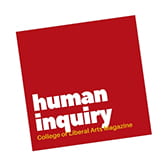For many readers, poetry is a place to visit and find solace or comfort. But for others, a poem is a place to reflect, as Amanda North, lecturer in the Department of English, contends in her new article “The Ruin
Month: July 2018
New Ideas in Dante’s “Inferno”
Dante Alighieri’s 14-century The Divine Comedy stands as one of the most popular epic poems ever written. Still, it has modern dimensions, in that it challenged traditional ideas. In a new article, “The Pagan Suicides: Augustine and Inferno 13,” published
Turning Points As Interpretive Acts
A turning point is a moment of decision and change of situation in life. In history and in fiction, events are considered turning points when they mark the moment when things begin to change. It is no wonder, then, that
When Empathy Goes Wrong
It has been argued that fixating on the big picture–such as tracking numbers–can obscure the lived experience of homelessness. Knowing, for example, that, according to the latest national estimate, Texas experienced a 1.8 percent increase in homelessness in 2017 may not help
Cutting-Edge Writers Share About Writing Fiction
The fiction writing process is an artistic one. But it also involves cultural, political, and philosophical dimensions. How do successful fiction writers do it? Autobiographies and biographies of past greats can give us insight. So can Divergent Trajectories: Interviews with
Karen Russell’s “Orange World” Published in the New Yorker
Karen Russell, University Endowed Chair in Creative Writing from 2017 to 2019, recently published a new short story, “Orange World,” in the New Yorker. Russell reads the short story for the magazine’s podcast, The Writer’s Voice. The magazine also featured
Read More Karen Russell’s “Orange World” Published in the New Yorker






